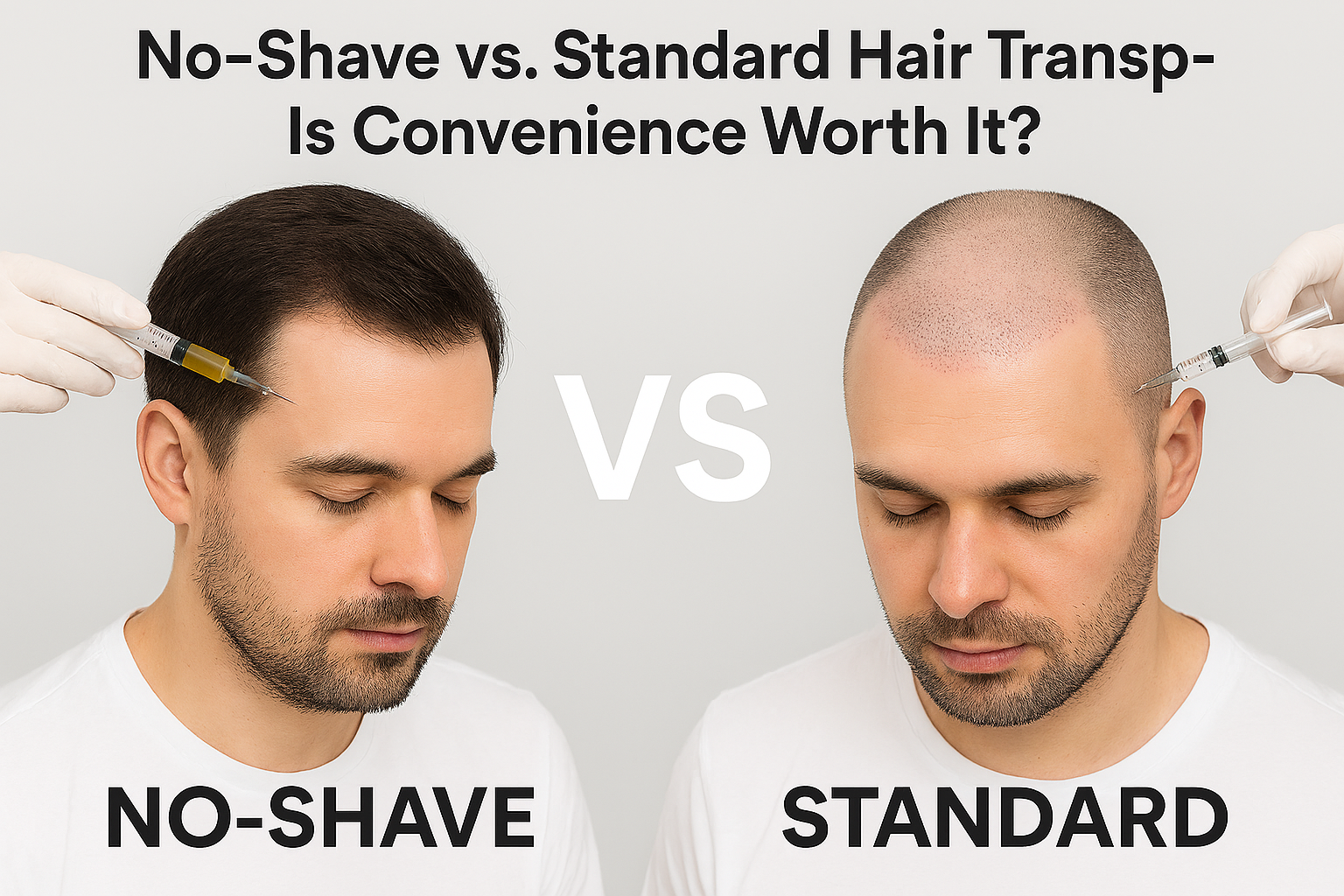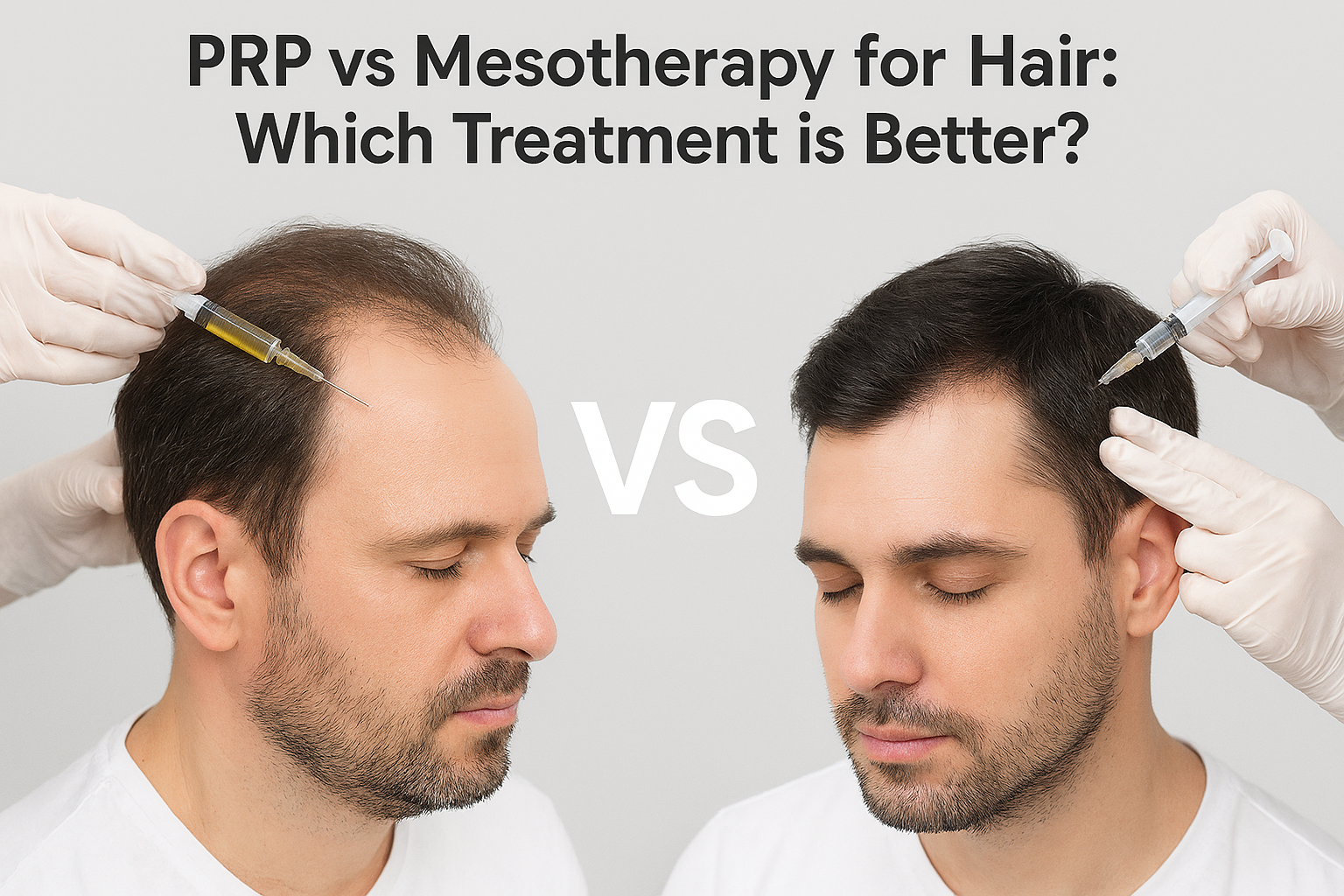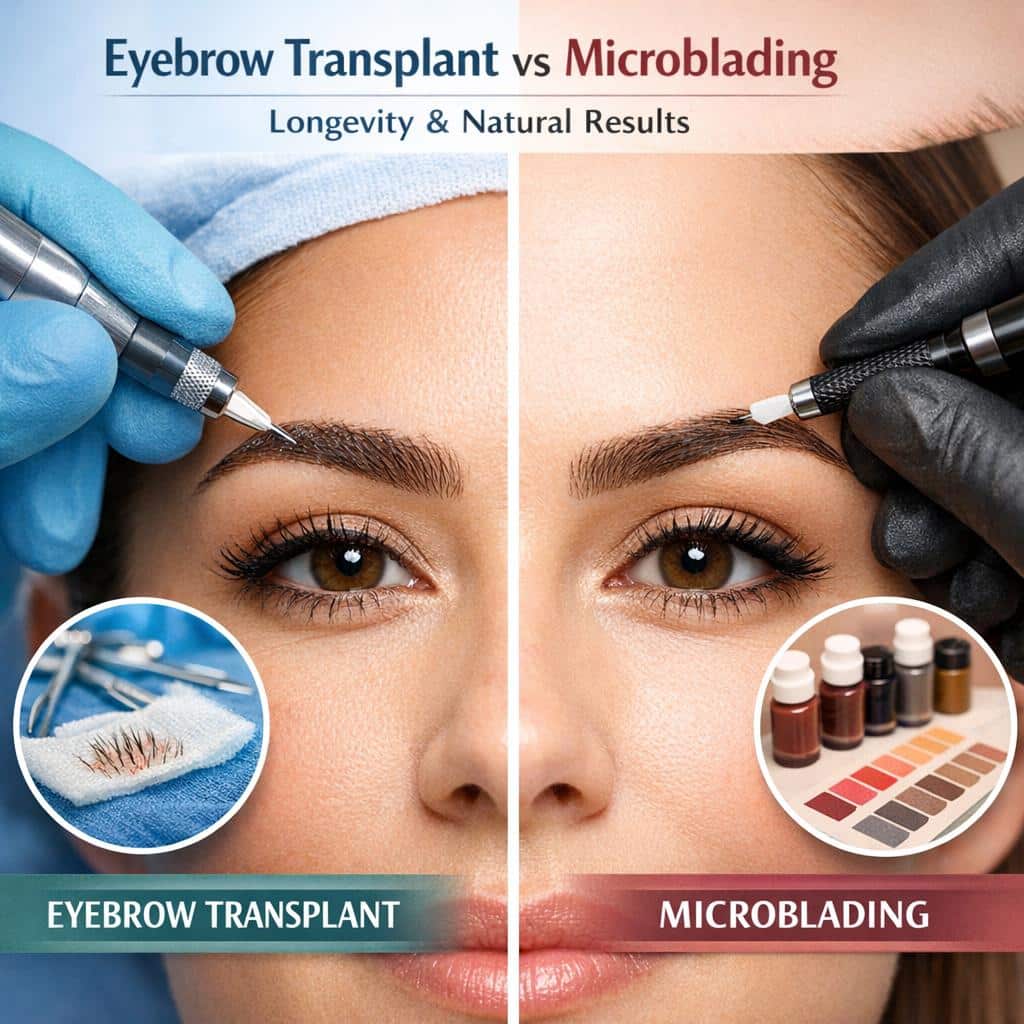Menopause and hair loss: Will my hair grow back?
Menopause hair loss occurs when levels of oestrogen and progesterone drop, and hair grows more slowly and becomes much thinner. Menopause and hair loss are, actually, deeply linked. Body hair loss after menopause is not a rare phenomenon due to hormonal imbalances, too.
The average menopause age is around fifty, and take into account that women notice changes in their hair for months, or years. Commonly, due to hair loss during menopause, the volume and structure of hair looks bad. Also, some women notice that their hair is not growing as much as before; after you wash your hair, you can see more hair in the sink, and you may encounter fallen hair on your brush.
The question is: can post menopausal hair loss cause baldness? What is the relation between hair loss and menopause? Is it normal to lose a lot of hair during menopause? How can we avoid hair shedding after climacteric? Let’s talk about it.
Table of contents
Does menopause cause hair loss?
So, can menopause cause hair loss? For many women, hair is an expression of their personality and their image. In severe hair loss, women may feel less feminine, less strong; it affects the self-confidence of a person, too. Female pattern hair loss (FPHL) is a quite common phenomenon, and it’s increased because of many factors, for instance age; but it also varies across ethnic groups.
Some women may come out with deeply hair thinning on the top of the head, and on the sides: this is defined as female hair loss, and the reason why some women decide to get a female hair transplant in Turkey. However, a full hair loss like men suffer from – and that ends with baldness – is rarely observed in women, even in cases of male pattern baldness in women, and of course, it’s never produced as a result of menopause.
Regarding hair loss in menopause, and although it can be seen at any age, women’s hair loss after menopause is a common condition after the climacteric. But, why? What causes hair loss in menopause? It’s known that oestrogens have a protective role and help to keep hair in the “growth stage”, so, when oestrogen levels fall due to menopause, androgen levels get increased and women are more exposed to their consequences on hair.
About menopause and loss of pubic hair, loss and thinning of pubic hair is part of the aforementioned consequences due to the decrease in hormone levels, such as oestrogens and progesterone; however, this does not mean that hormones alone should be seen as a factor or reason behind hair loss during climacteric.
As we said before, one of the main reasons for hair loss in women is age. Even if women are using some products to avoid hair loss, in the end getting older is something we cannot control, or avoid. Genetic factors also have an important role in female-type hair loss, as hair loss in both men and women has been found to be linked to family inheritance. Stress also has a place in hair loss, as well as certain medications and their side effects, too.
Is menopausal hair loss permanent?
Ok, menopause can cause hair to fall out. But, does hair loss from menopause grow back? The answer is yes. Normally, hair loss due to menopause is not permanent and can be completely reversed. In cases where hair does not grow back, normally a FUE hair transplant should be necessary to restore hair back; however, this is not the case when just hormonal imbalances are causing hair loss.
So, in order to determine if it’s permanent or not, a hair specialist will ask you some questions about your hair loss; for example, if there are other factors triggering hair loss, such as bad nutrition or any stressful incident. Also, you will be asked about your medical history to determine if you suffer from any disease such as anaemia, iron deficiency, or any skin disorder that is affecting to your scalp or your hair health. All these questions have the same aim: to determine if your hair loss can be reversed or not, and if hair lost will grow back… or not.
Menopause hair loss treatment
Regarding hair loss and menopause treatment, you can reduce the symptoms of menopausal hair loss following some tips, such as minimising the use of hair straighteners, hair driers and other heat-working instruments, that cause additional damage to your hair.
And what about biotin? Does biotin help menopausal hair loss? Well, biotin is probably one of the best products for menopausal hair loss you can use, since it has many benefits on hair with little or none side effects. Therefore, you should use biotin-based products to stop hair from falling out during menopause, since it helps to restore and nourish your hair.
You can also use some medications that speed up hair growth, such as Finasteride. However, although it gets results and makes thinned hair grow strong again, it takes several months to take effect, and once the treatment is stopped our hair will recede to its previous situation. Besides, Finasteride has several sexual side effects, as several studies have shown. So, in summary, we cannot consider using Finasteride as the best product for menopausal hair loss.
Low energy-emitting laser devices can stimulate hair growth, too. Laser therapy must be performed by professional hairdressers or therapists that are highly qualified, and have a good experience on these devices. However, reliability and effectiveness of these treatments in the long run, is actually unknown.
How to reverse thinning hair after menopause
Another question is how to reverse thinning hair once menopause is over. In this regard, using some shampoos and hair conditioners may improve hair appearance. A healthy and balanced diet is an important factor for a healthy body, too; so, a nutritional analysis may be useful.
At last, but not least, our hair plays an important role in protecting our head scalp from the sunlight. For this reason, you should protect the less populated areas of your head from sunlight, and avoid the risks of long-term sunburn.
When should I worry if I have menopausal hair loss?
The fact is that we have mentioned until now the consequences that menopause can have on women’s hair, and how to deal with them. But, what happens when hair shedding levels are alarming? Is it normal to lose a lot of hair during menopause? When should we be worried about our hair loss?
Well, if you are going through menopause and you are experiencing hair loss, you should always consult your doctor in the following cases:
- If your hair is shed at an unusual grade.
- If hair does not grow back again in areas where hair has fallen out.
- If you have pain or irritation besides hair loss.
- If your scalp skin is red, pulsed, or if there is another abnormal condition.
- If you are suffering from other abnormal symptoms.
In summary, we must bear in mind that menopause hair loss is a quite common and “normal” phenomenon, and that we should not be worried about it, unless we start to experience too much shedding and other issues. Anyway, we always advice to ask for help from the very first moment you start to lose hair: the sooner, the better. In Clinicana, we are specialised in all hair treatments. Just click on our free consultation service, no obligations at all… and tell us how can we help you to save your hair.

For many individuals facing hair loss, the decision to undergo a hair transplant is not hindered by the surgery itself, but by the recovery phase. Specifically, the prospect of shaving one’s head is a significant psychological barrier. In our clinical practice, we frequently meet patients—ranging from high-profile executives to women with diffuse thinning—who delay necessary […]

Investing in a hair transplant is a significant decision that represents a commitment to restoring not just your hair, but your self-confidence. However, the procedure itself is only the beginning of the journey. Once you leave the operating room, your scalp enters a critical recovery phase where the newly implanted follicles must anchor themselves and […]

The eyebrows are one of the most defining features of the face, framing the eyes and conveying emotion. However, for many people, achieving the perfect brow is a daily struggle involving pencils, powders, and gels. Over-plucking in the past, genetic thinning, or medical conditions can leave brows sparse or misshapen. In the quest for a […]













